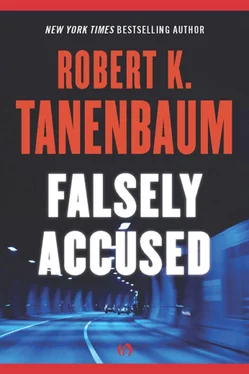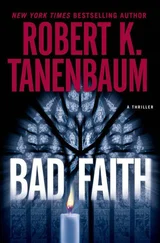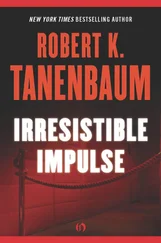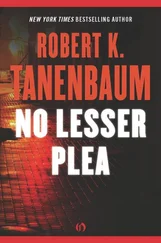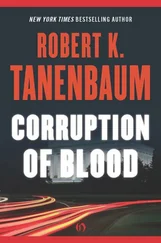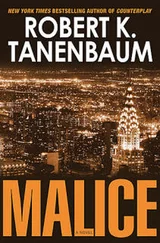Robert Tanenbaum - Falsely Accused
Здесь есть возможность читать онлайн «Robert Tanenbaum - Falsely Accused» весь текст электронной книги совершенно бесплатно (целиком полную версию без сокращений). В некоторых случаях можно слушать аудио, скачать через торрент в формате fb2 и присутствует краткое содержание. Год выпуска: 2010, Издательство: Open Road Integrated Media, Жанр: Криминальный детектив, на английском языке. Описание произведения, (предисловие) а так же отзывы посетителей доступны на портале библиотеки ЛибКат.
- Название:Falsely Accused
- Автор:
- Издательство:Open Road Integrated Media
- Жанр:
- Год:2010
- ISBN:нет данных
- Рейтинг книги:5 / 5. Голосов: 1
-
Избранное:Добавить в избранное
- Отзывы:
-
Ваша оценка:
- 100
- 1
- 2
- 3
- 4
- 5
Falsely Accused: краткое содержание, описание и аннотация
Предлагаем к чтению аннотацию, описание, краткое содержание или предисловие (зависит от того, что написал сам автор книги «Falsely Accused»). Если вы не нашли необходимую информацию о книге — напишите в комментариях, мы постараемся отыскать её.
Falsely Accused — читать онлайн бесплатно полную книгу (весь текст) целиком
Ниже представлен текст книги, разбитый по страницам. Система сохранения места последней прочитанной страницы, позволяет с удобством читать онлайн бесплатно книгу «Falsely Accused», без необходимости каждый раз заново искать на чём Вы остановились. Поставьте закладку, и сможете в любой момент перейти на страницу, на которой закончили чтение.
Интервал:
Закладка:
“No.”
“Did you solicit, did you demand from your subordinates in the D.A.’s office, damaging information about Dr. Selig?”
“No, I did not.”
That’s a lie, thought Karp with satisfaction. Now let’s try for a few others. “Did you meet with the Mayor on May twenty-third to discuss your problems with Dr. Selig?”
Consultation with Wharton. “I’d have to consult my calendar.”
“No need. I give you a copy of the Mayor’s appointment book page for that date. You met with him. And did you discuss Dr. Selig?”
“I may have.”
“And isn’t it true that for your own reasons you decided that Dr. Selig had to be fired well before you received any complaints about him from your staff …”
“Don’t answer that!” said Wharton.
“… and that you are in fact the source of this conspiratorial vendetta against Dr. Selig?”
“This is preposterous!” said the D.A. A flush had spread across his smooth pink cheeks.
“I take it you are answering no to my last question.”
“Of course, no!”
“Thank you. Turning now to the charges in your letter related to the case People v. Mann. When did you first become aware of the charges that Dr. Selig had allegedly lost evidence in that case?”
Bloom seemed to relax as he answered the question, and the next, and the next. Karp took the D.A. over the four homicide cases mentioned in the letter to the Mayor. The questions were routine; Karp knew all the answers, having already deposed the staff people responsible for supplying the information. The purpose of the questioning was to establish the full involvement of the D.A. himself in the conspiracy to unseat Selig.
The questioning continued for some hours, until late in the afternoon. The windows in Karp’s office had already gone dark. A dullness had settled over the group. Karp had made his voice monotone. The questions were repetitive: when did you, what did you, I show you this letter, this memo, have you seen, are you familiar with?
And then, in the midst of this ennui, not changing his tone at all, casually Karp asked, “What occurred during the second or third week in May that convinced you that Dr. Selig had to be fired?”
A frozen moment. The tap of the steno’s fingers petered out in a dry rattle. Everyone looked at Bloom. Karp saw what he was looking for, the startled flick of the eyes, the movement at his throat as he swallowed hard. Karp looked at Wharton too, and he saw that Wharton had his little cherub’s mouth open, and that he was looking at his patron with confusion on his face.
This took only a second or two. Then Bloom cleared his throat, smiled, and shrugged. “I’m sorry, I don’t know what you’re talking about.”
Karp stared briefly at him and then continued, as if nothing had happened, with a question about some petty point about the chain of custody relative to a bloody shirt in People v. Mann.
Bloom and Wharton left soon afterward. The steno packed up her machine and left too. When they were alone, Murray Selig said, “I thought that went okay. You shook him up a couple of times.”
“It went about like I thought it would,” said Karp flatly, not looking at his client, arranging papers into piles.
After a pause, Selig asked, “You’re still pissed off at me.” It was a statement, not a question.
Karp said, “We’re not married, Murray. You’re the client. It doesn’t matter if I’m pissed off at you. The opposite, that would matter.”
Selig laughed unconvincingly. “You’re a hard guy, you know that, Butch? I told you, I forgot about those jobs.”
Karp looked up from his papers. “Murray, look: this is how it is. We prepped like crazy for your deposition by the defendants, and I remember telling you, I believe, numerous times, that a critical part of your case for damages was a showing that you could not be employed as a chief medical examiner, or as a competent authority in the field, because your reputation had been so badly besmirched by these momsers, and that therefore, if you had taken employment in your field, I needed to know about it, so I could advise you as to how to answer their questions relating thereto. Imagine how surprised I was, then, when the Mayor’s counsel asked you if you were negotiating for the job of chief fucking medical examiner of Suffolk County, and you said yes, you were.”
“I explained that, Butch. It was my in-laws doing me a favor. They’re big shots out in Suffolk.”
“Murray, it’s fine, God bless them. I just needed to know that beforehand. That, and the other little zingers that came out in deposition. A book contract you didn’t tell me about. That job you did up in Tuxedo-”
“That’s chickenfeed!”
“To you it’s chickenfeed. To a jury that we’re asking to give you a couple of million ‘cause you’ve been hurt so bad, fifteen hundred bucks for a day’s work doesn’t sound like injury. Most of them, they don’t make a yard and a half a day.”
“Okay, you made your point. But the rest of it, my deposition, I thought it went okay. Better than Bloom just had, I mean.”
“Of course it went better, Murray. You were telling the truth and he was lying. We’re the good guys. But I have to know what’s going on, or good guys or not, we’re going to look like dog shit at trial.”
“Okay, guaranteed, cross my heart,” said Selig, who had brightened considerably. “By the way, speaking of which, I thought Bloom was trying to slip one past his counsel. When you asked him that one about mid-May and why he wanted me fired. His lawyer looked like he’d been cold-cocked for a second there. What was that about, anyway?”
“See? That’s how I felt,” said Karp.
“Butch, enough already! You want me to squirm?”
“Yes.”
“But really, what do you think all that was about?” Karp shrugged, as if he didn’t care, and made some dismissive remark and they passed on to other subjects, but in reality there was nothing he cared about more at that moment than whatever it was about the middle of May that had brought that transient look to Bloom’s face, what it was that he had not shared with his closest political and legal adviser, a man with whom the D.A. had conspired, to Karp’s personal knowledge, in a half dozen serious malfeasances. But although he didn’t yet know what it was, he knew for certain what it meant. It meant that whatever Bloom had done, it was worse than a malfeasance. It had to be bad. Felony bad, going to jail in handcuffs bad. The thought warmed him like a log fire.
TEN
Old St. Patrick’s Cathedral, on Mulberry and Prince Street, had been built as the archdiocesan seat in 1815 when the surrounding area had been the heart of the City. The area had gone downhill since then, as the surrounding tenements had first filled with Irish and then Italians. Both tides had rushed in and aged and become rich and ebbed out to the ’burbs. Now Old St. Pat’s was just another church, its parishioners now few and largely Latin American. Every Sunday they were joined, at the latest possible Mass, by Marlene Ciampi.
Who maintained, as she had since the age of fourteen, a complicated, variable, and heterodox relationship with the Holy and Apostolic Church. She tended to treat the various contradictions she found in her religion-all that business about women and who was allowed to place what sexual part in what opening and when-as she treated those in her quotidian life: with cavalier disregard. If she could be a good mother and an irresponsible rakehell, she could also be a weekly communicant and a kick-ass feminist. In her secret heart she believed that were she allowed a half hour with the pope, no holds barred, she could straighten him out, but failing that, she refused to either give up the Church or go along with it.
Читать дальшеИнтервал:
Закладка:
Похожие книги на «Falsely Accused»
Представляем Вашему вниманию похожие книги на «Falsely Accused» списком для выбора. Мы отобрали схожую по названию и смыслу литературу в надежде предоставить читателям больше вариантов отыскать новые, интересные, ещё непрочитанные произведения.
Обсуждение, отзывы о книге «Falsely Accused» и просто собственные мнения читателей. Оставьте ваши комментарии, напишите, что Вы думаете о произведении, его смысле или главных героях. Укажите что конкретно понравилось, а что нет, и почему Вы так считаете.
